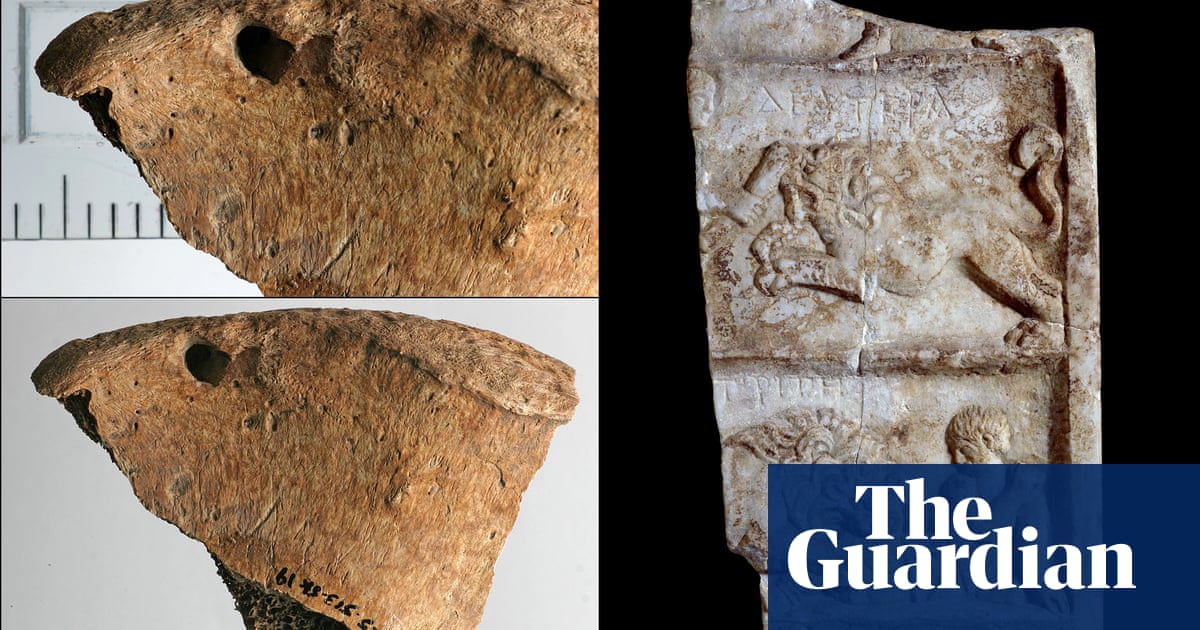Suggesting that spectacular visual metaphor is the Royal Shakespeare Company’s new house style, a Hamlet set on a cruise liner is followed by a Much Ado About Nothing based in elite Italian football. After the National Theatre’s Gareth Southgate bio-drama Dear England, this must be the first season that both big subsidised companies have filled stages with young men in replica club shirts and jockstraps.
Before this Much of the Day starts, a TV sports feed tells us that FC Messina have beaten Madrid FC 3-2 in a European final, with a hat-trick from young winger Claudio. But cocky journeyman midfielder Benedick – jibed as “Signor Own-Goal”, replacing Shakespeare’s sexualised insult “Mountanto” – refuses to be interviewed by TV sportscaster Beatrice, due to some past bad match.
While Hamlet takes place surrounded by sea, this re-sported Messina is more of a stretch, requiring “war” to become “game”, Leonato “owner” rather than “governor” and nobleman Don Pedro a “manager”, although football’s nickname culture permits him to be addressed as “Sweet Prince”, which is relatively modest in comparison with José Mourinho’s “Special One”.

And for football aficionados, it is shaming how well the game fits the plot of the brutal misogynistic slandering of a young woman, Hero. Indeed, a play revolving around falsehoods and pranking gains new power when everyone has a mobile phone. And masked balls (on which many misunderstandings depend) also feel plausible partying for Champions League millionaires.
Less happily, the footballing cliche about a game of two halves also applies to the production. After halftime, as football kit gives way to wedding gear, the metaphor visually vanishes. Also, a common football-managerial complaint about the pace of play – moving the ball faster here, tactically slowing things down there – is something director Michael Longhurst might look at before a second elsewhere.

One of the most remarkable lines in Shakespeare, Beatrice’s demand that Benedick “Kill Claudio”, is gabbled without a preceding pause, while other scenes need much quicker passing, especially as the comic coppers (cut completely from Jamie Lloyd’s recent London Much Ado) get a full game. Dogberry and the other members of his watch as hi-vis private security is a good sight gag but their lines frequently die.
Freema Agyeman’s winning Beatrice looks – although the conceit can’t encompass women’s football – as if she might be a better player than Nick Blood’s Benedick, who has the poignancy of a late-career athlete, while Peter Forbes’ sleazy Leonato would easily fail the Premier League’s “fit and proper owners” test. Eleanor Worthington-Cox’s hopeful Hero could have walked on from Amazon Prime’s Married to the Game. Jon Bausor’s set makes amusing use of a folding massage table, and the clothes, from tracksuits to designer suits and frocks, should win him a costume trophy. The overall show, though, is a little bit, as they spell it in football, Messi.

 5 hours ago
8
5 hours ago
8













































